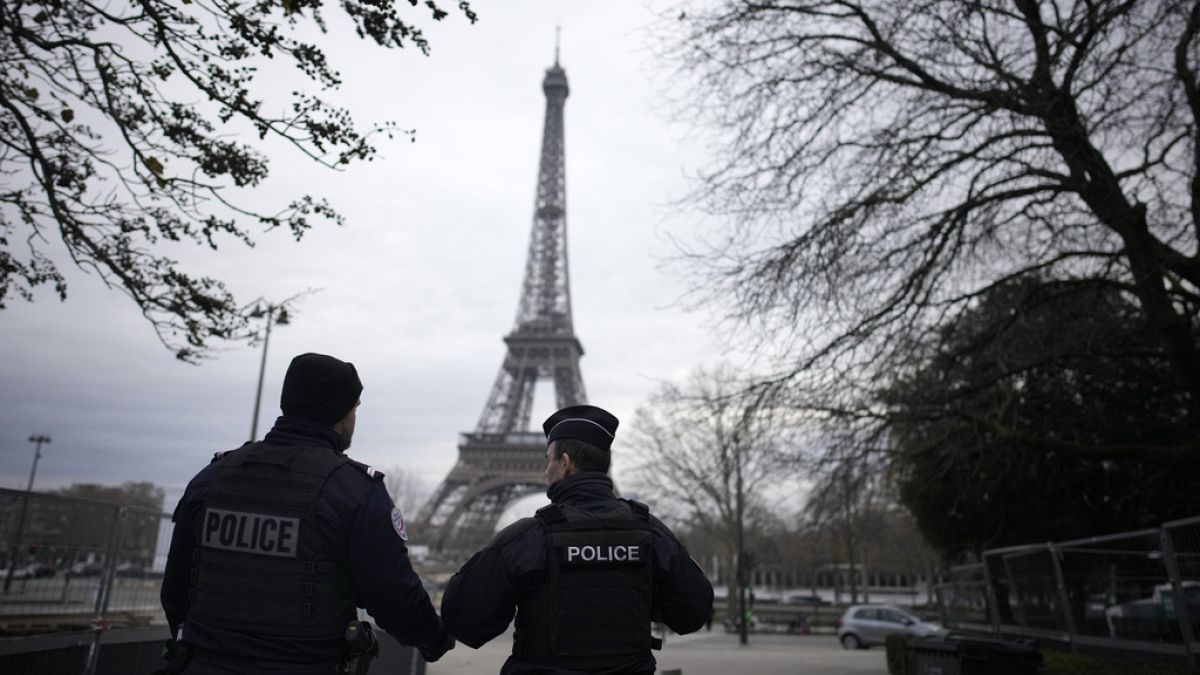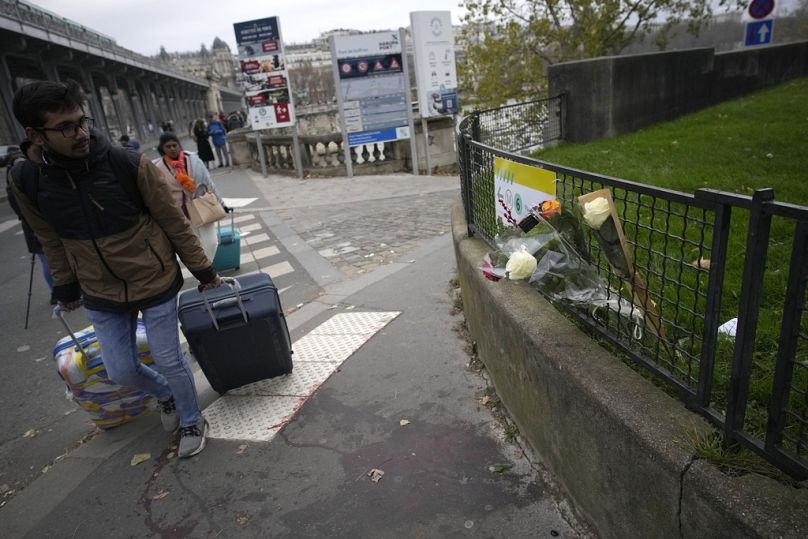French authorities insist that they do not plan to move the event and security measures will be put in place following Saturdays fatal attack near the Eiffel Tower.
Questions about security in Paris before it hosts the Olympic Games next year are being raised following the attack on Saturday near the Eiffel Tower that cost the life of a German-Filipino tourist.
The stabbing took place within the future security perimeter that will blanket both banks of the River Seine when the games open on July 26.
The show and parade for the 10,500 athletes will take place along the waterway that cuts through the French capital and is expected to draw 15 million spectators to the Paris region.
The size and scope of the event make it a daunting public safety challenge in a city that has been repeatedly hit by extremist attacks.
In mid-October an attack in Arras, in the Pas-de-Calais, cost the life of a teacher and led to Vigipirate - France's national security alert system - being raised to the maximum "emergency attack" level.
Following the attack, French former Minister of Sports David Douillet expressed reservations:
"If the day before, the lights are crimson red regarding the risks of an attack, a plan B will be needed for the opening ceremony," he told La Tribune Dimanche.
No Plan B
Sports Minister Amélie Oudéa-Castéra insisted Monday that France was capable of safeguarding the opening festivities.
They will be the first Olympics held outside of a stadium, which is easier to secure. There are no backup plans to move the event elsewhere, but the scale of the show and spectator numbers could be tweaked, if necessary, the minister said.
“We don’t have a Plan B. There is a Plan A within which there are several sub-plans," Oudéa-Castéra said on France Inter radio.
Both the organizing committee and the French President, Emmanuel Macron are strongly committed to the principle of the opening ceremony and relocating it is "a hypothesis" not currently being considered.
Interior Minister Gérald Darmanin said that in Bir-Hakeim, near where the attack took place: "there will be a cordon which will prevent people from returning if they have not presented documents".
“We have set up security perimeters in Paris and in all the major cities hosting the Olympics so that this type of thing does not happen and to control the identity of people,” he assured.
Organizers of the game have reiterated that since France secured the Games, two years after the 2015 Paris attacks: "all threats, including terrorist threats, have been taken into account by the State".
An average of 30,000 police officers will be mobilized every day and spectators will not be able to move around freely in the six-kilometre zone, which will be divided into around ten sections.
Investigations into suspect's mental health
However, the government has fears about the importation of the conflict in the Middle East between Israel and Hamas onto French soil.
French police were looking on Monday into the mental health of the suspected assailant, who swore allegiance to the Islamic State group before carrying out the attack.
The French national taken into police custody, Armand Rajabpour-Miyandoab, has a history of mental illness and of Islamic radicalization, officials said.
“This is a case that links radical Islam, undeniably, and mental illness. I must tell the French people the truth that there are numerous cases like this," French Interior Minister Gérald Darmanin said Monday, adding that around one-third of suspected radicals under surveillance have psychiatric issues.
The suspect in Saturday's attack previously spent more than 3 1/2 years in prison on a terror conviction.
He was on a police list of feared radicals, was being watched by France's counter-terrorism surveillance agency and received mandatory psychiatric care until April of this year, officials said.
Power to force psychiatric treatment
Speaking to broadcaster BFMTV, the interior minister said authorities should be given greater powers to force psychiatric treatment on people in such cases.
“There appears to have been a psychiatric failing because doctors on multiple occasions decided that he was better, that he was more normal and could live freely,” Darmanin said.
A few weeks before the attack, the suspect's mother had told police that her son had stopped taking his medicines, but she was too scared of him to ask that he be hospitalised, the minister said.
“She didn’t want to, apparently because she was scared of her child, which is understandable," he said. "She came back a few days later to say that he seemed better.”

